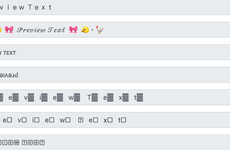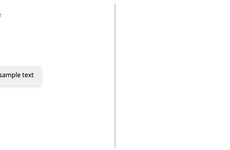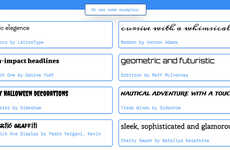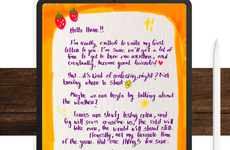
'My Text in Your Handwriting' Creates Forged Text from Small Samples
'My Text in Your Handwriting' is a piece of handwriting forging software developed by researchers from the University College London. With input of only a paragraph of handwritten text, the software is able to develop a quasi-font that looks like authentic handwriting in the style submitted.
While "font" might be the best description of 'My Text in Your Handwriting's' output, there is little that connects the software to something that comes from a word processor. Fonts are regular, with every letter being the same each time it's typed, while handwritten letters change each time. The forging software takes that variance into account to create authentically handwritten text based on any real handwriting.
Though the software could potentially be used nefariously, the researchers also see it being used by stroke victims who have limited motor control.
While "font" might be the best description of 'My Text in Your Handwriting's' output, there is little that connects the software to something that comes from a word processor. Fonts are regular, with every letter being the same each time it's typed, while handwritten letters change each time. The forging software takes that variance into account to create authentically handwritten text based on any real handwriting.
Though the software could potentially be used nefariously, the researchers also see it being used by stroke victims who have limited motor control.
Trend Themes
1. Handwriting Forgery - The development of handwriting forging software opens up opportunities for creating realistic forged text from small samples.
2. Quasi-fonts - The creation of quasi-fonts based on authentic handwriting allows for the generation of personalized and unique text styles.
3. Assistive Technology for Stroke Victims - The application of handwriting forging software as assistive technology for stroke victims with limited motor control can revolutionize their ability to communicate.
Industry Implications
1. Cybersecurity - The rise of handwriting forgery software necessitates the development of advanced cybersecuirty measures to detect and prevent fraudulent activities.
2. Graphic Design - The emergence of quasi-fonts presents disruptive innovation opportunities for graphic designers to create truly unique and personal typography.
3. Healthcare - The use of handwriting forging software as assistive technology opens up new avenues for healthcare providers to improve communication and quality of life for stroke victims.
3
Score
Popularity
Activity
Freshness























